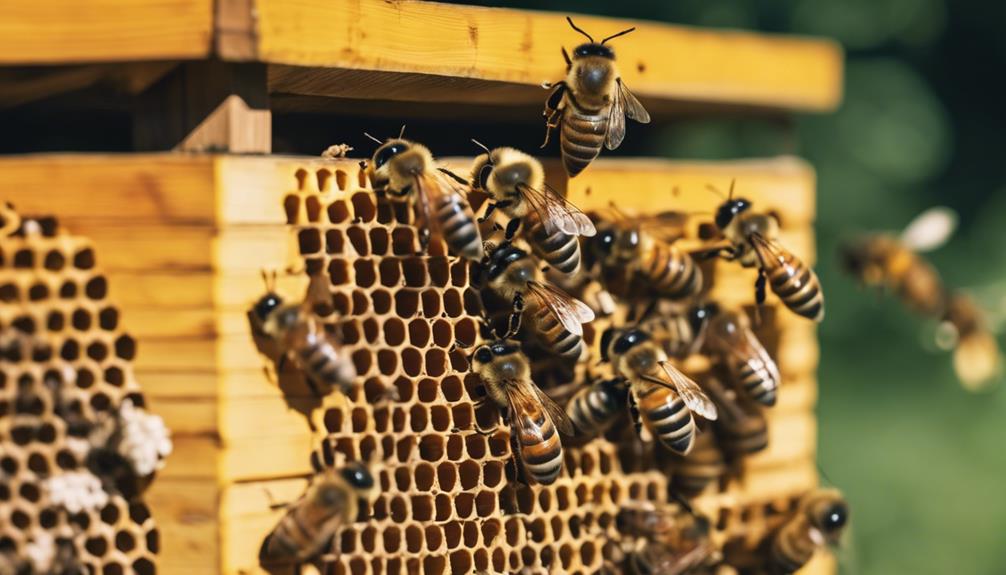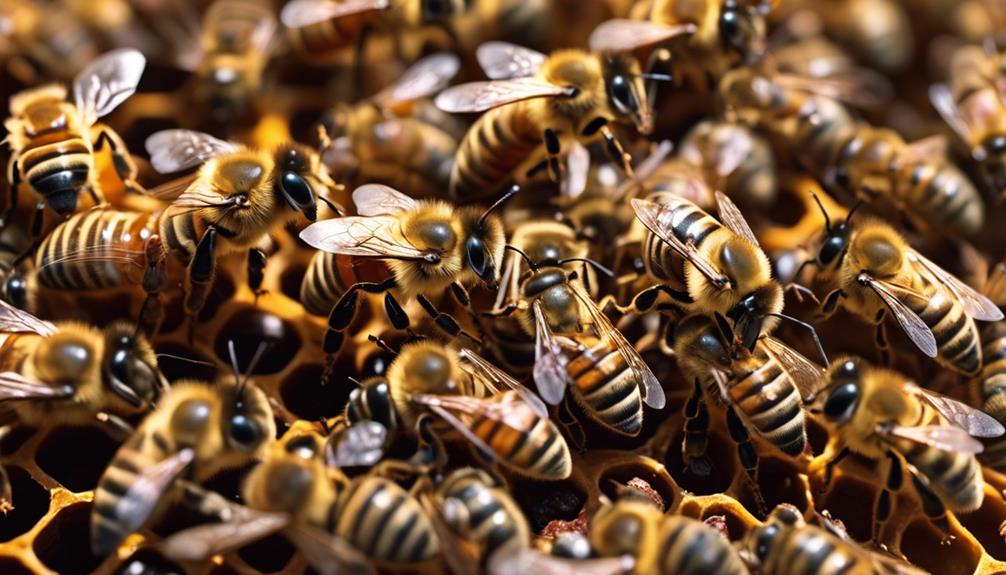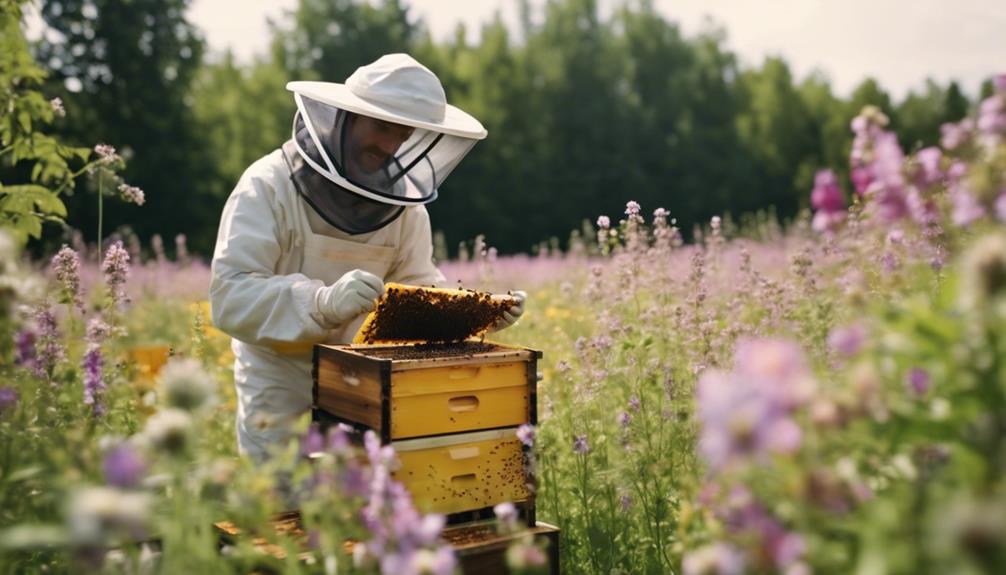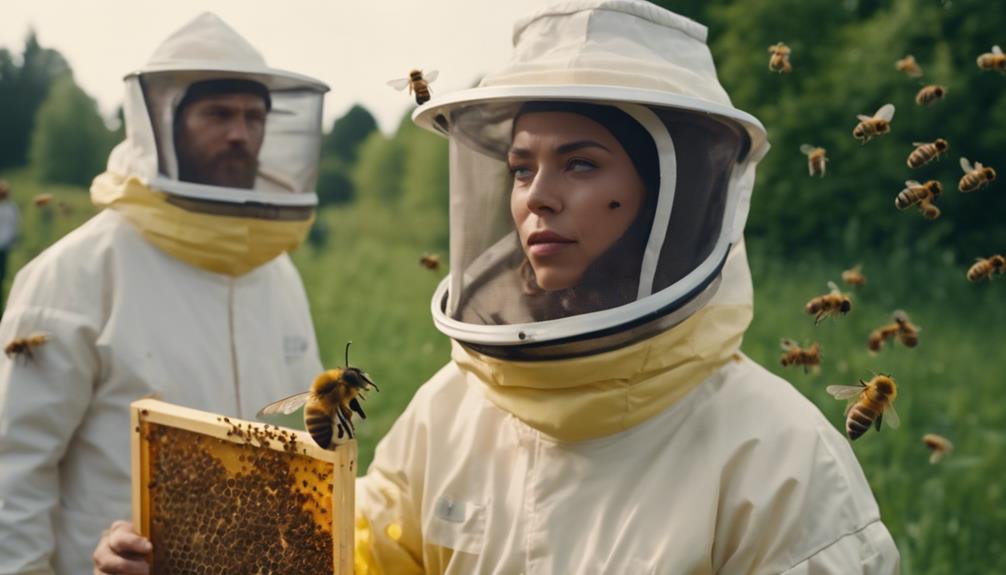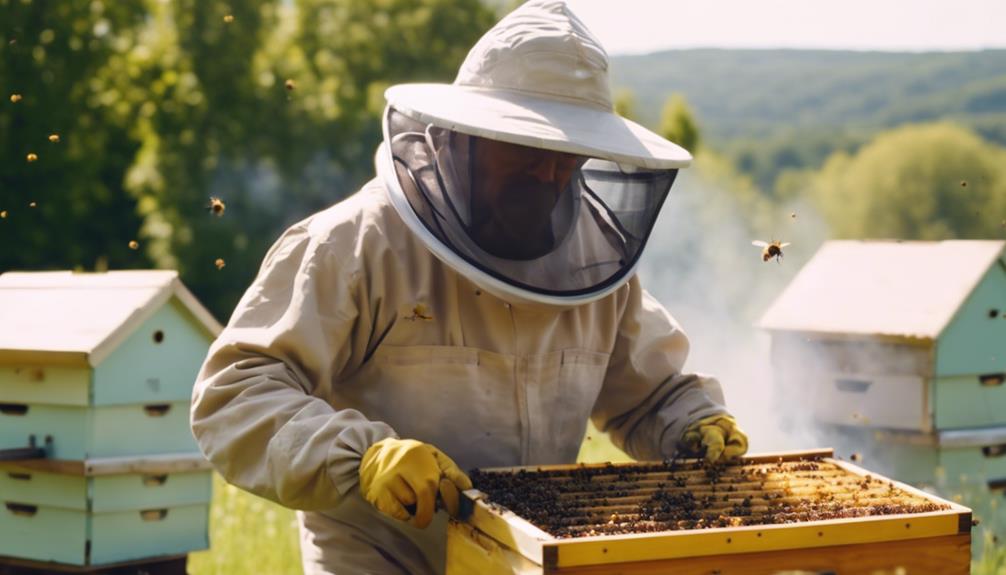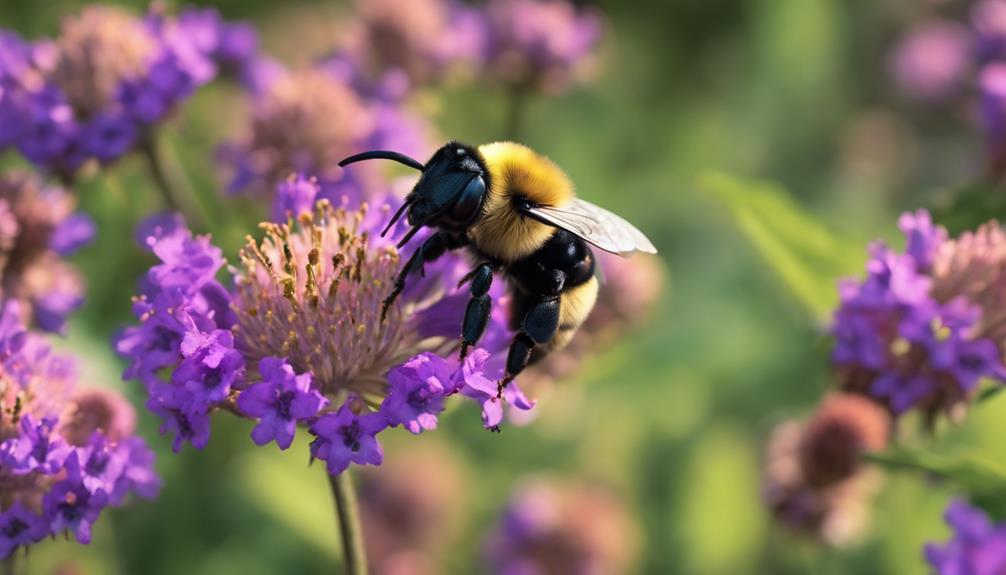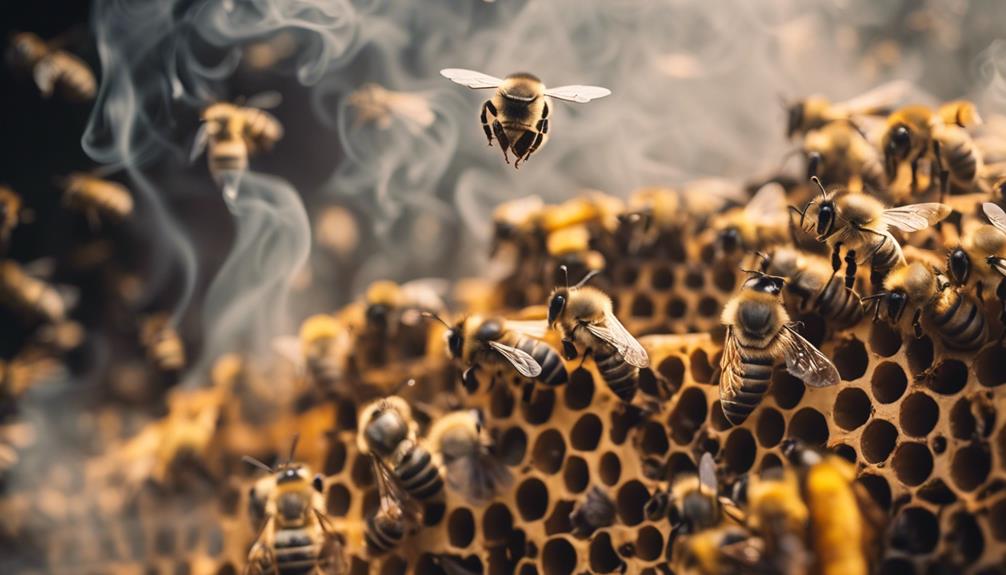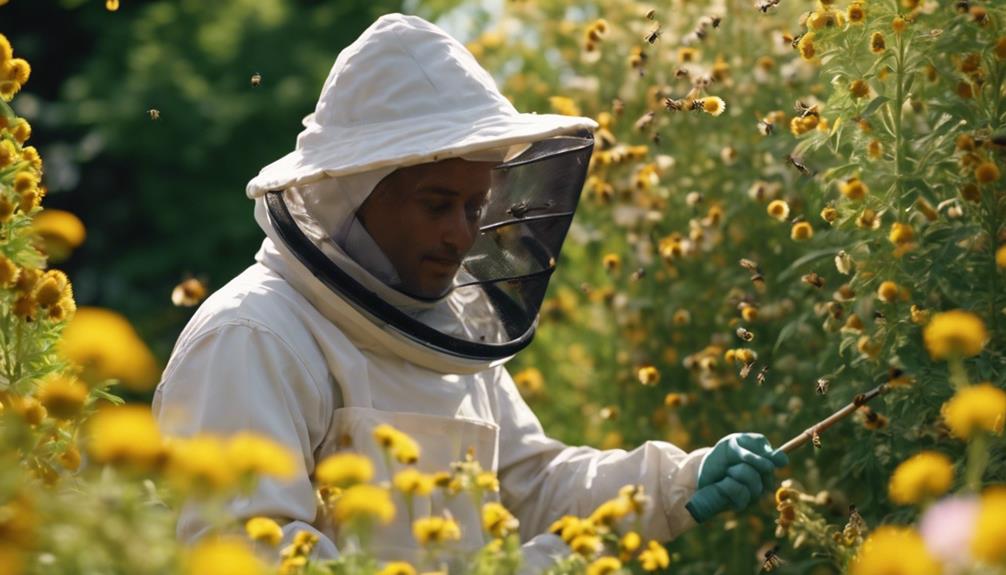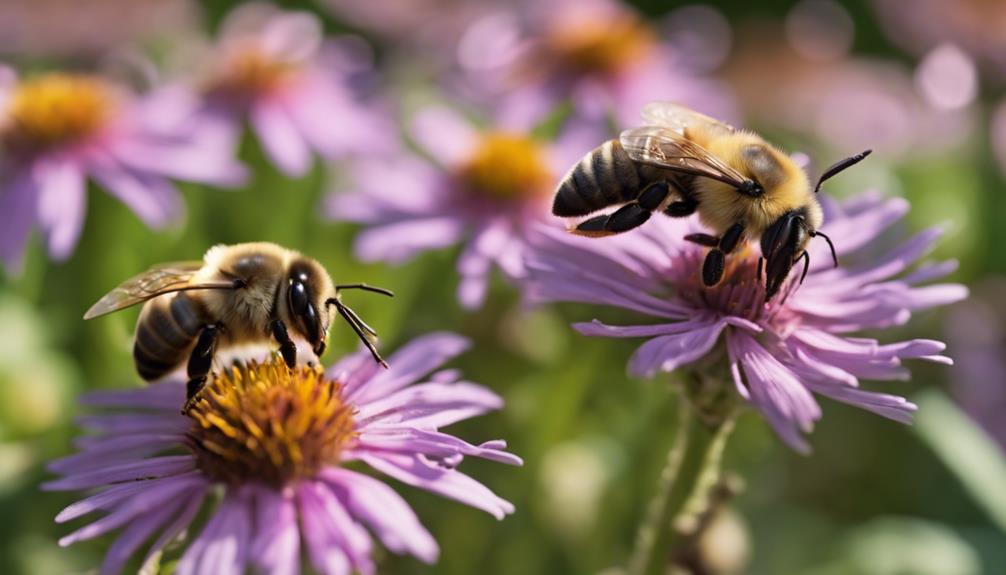When it comes to selecting between Carniolan and Italian bees, there are important factors to contemplate. Italian bees are renowned for their high honey yields
Read MoreAuthor: Noel Calvin
What Is the Worker Bee Mentality?
The worker bee mentality embodies traits like consistency, teamwork, and unwavering determination, essential for hive functioning and survival. Handling core tasks like protecting eggs and
Read MoreCan You Get Ethical Honey?
When seeking ethical honey, it’s essential to opt for options that come from transparent sourcing, like those from local beekeepers. Choosing honey with organic certifications
Read MoreDo They Still Smoke Bees?
We still use smoke to calm bees when working with honeybee colonies. It’s a technique that dates back to Indigenous Native Americans who discovered that
Read MoreDoes Beekeeping Require a Lot of Maintenance?
Beekeeping definitely keeps us busy with regular maintenance to keep our buzzing buddies happy and thriving! From hive inspections to equipment upkeep and pest control,
Read MoreAre There Any Native Bees That Make Honey?
Stingless bees, those captivating little creatures, are our native honey makers, buzzing around and creating delicious honey while also pulling their weight in pollination duties.
Read MoreCan You Use Smoke to Get Rid of Bees?
Dealing with bees, utilizing smoke can work wonders. It actually helps keep them calm, making hive inspections much smoother and safer. The smoke masks their
Read MoreWill Smoke Make Bees Go Away?
Using smoke to handle bees is a neat trick many beekeepers know. See, smoke helps calm bees down and makes them less likely to sting,
Read MoreIs There an Ethical Way to Get Honey?
In regards to honey, there’s definitely an ethical way to obtain it! By prioritizing bee welfare and environmental sustainability, selecting honey from local beekeepers with
Read MoreWhat Is the Difference Between Carnica and Carniolan Bees?
So, here’s the lowdown on Carnica versus Carniolan bees: Although they’re both under the Apis mellifera carnica family tree, Carnica bees are from Carniola in
Read More